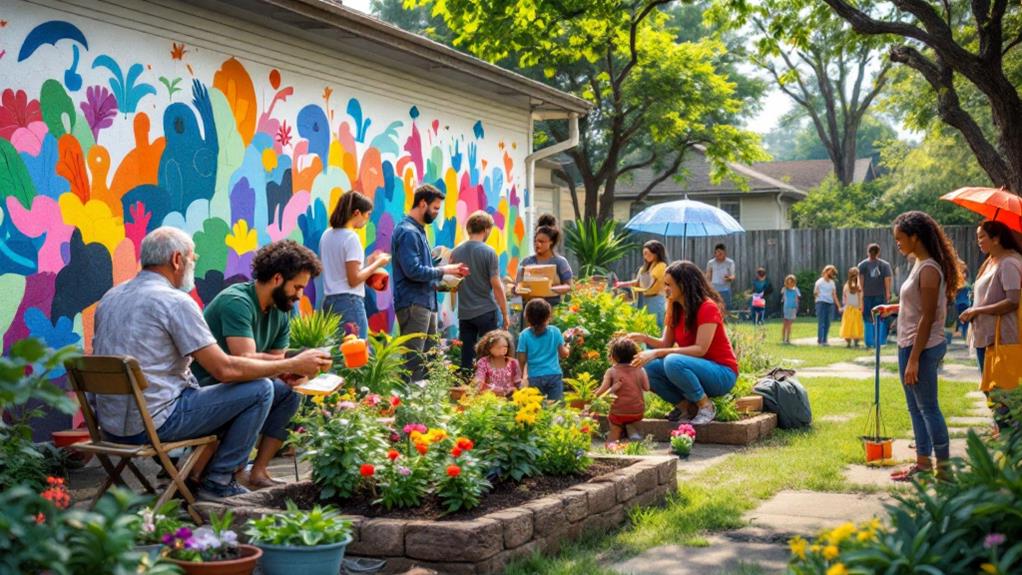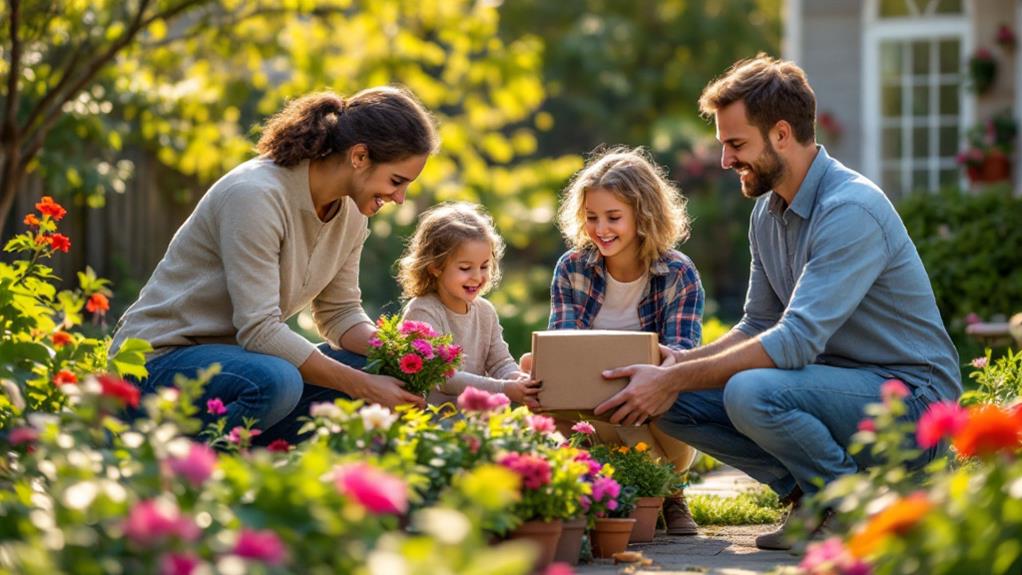How Random Acts of Kindness Help Build Stronger Communities

Random acts of kindness can deeply impact your community, creating a ripple effect of positivity. When you perform small acts of kindness, you're not just helping one person; you're potentially sparking a chain reaction. These gestures can improve mental health, lower blood pressure, and nurture empathy. In your workplace, kind acts can elevate morale and job satisfaction. At home, they strengthen personal relationships and build trust. Community-wide, kindness-focused events and programs enhance social cohesion and cultivate a sense of shared purpose. By embracing kindness, you're contributing to a stronger, more supportive community. Uncover how your small actions can lead to significant changes.
The Ripple Effect of Kindness
Numerous studies have shown that kindness is contagious. When you perform a simple act of kindness, you're not just helping one person; you're potentially sparking a chain reaction that can touch countless lives. This ripple effect of kindness can alter, shape, or influence communities, making them more supportive and harmonious.
Consider the impact of helping your neighbor with their groceries. This small gesture might inspire them to do something nice for someone else, perpetuating the cycle of goodwill. Similarly, when you pay for a stranger's coffee, you're not only brightening their day but also encouraging them to pass on the kindness they've received.
The beauty of random acts of kindness lies in their simplicity and accessibility. You don't need grand gestures to make a difference. Even the smallest act can create far-reaching effects, spreading outwards and touching many lives along the way. By consciously choosing to help others and spread kindness, you're contributing to a more positive and interconnected community. Remember, your actions have the power to inspire others and create a domino effect of goodwill that can modify, change, or reshape your entire neighborhood.
Nurturing Personal Relationships
The foundation of a thriving community lies in the strength of its personal relationships. When you show kindness to someone, whether it's a family member, friend, or neighbor, you're not just improving their day; you're nurturing the bonds that hold your community together.
By actively listening, expressing gratitude, and recognizing the efforts of those around you, you create an environment of trust and support. These acts of kindness can substantially impact mental health, making people feel valued and appreciated. When you offer support during challenging times, you're helping others overcome obstacles and stay motivated.
Showing kindness in your personal relationships doesn't have to be grand gestures. Simple acts like sending a thoughtful message, offering a helping hand, or celebrating someone's achievements can make a world of difference. As you cultivate a culture of kindness within your inner circle, you'll notice a more harmonious and supportive atmosphere developing.
Fostering Workplace Harmony
In the sphere of professional life, nurturing workplace harmony through spontaneous acts of generosity can substantially influence team dynamics and productivity. By cultivating a culture of kindness, you'll sustain an environment that promotes good mental health and enhances collaboration among colleagues. The Mental Health Foundation emphasizes the importance of supportive work environments in maintaining overall well-being.
You can start by recognizing and celebrating your coworkers' achievements, which helps build a positive atmosphere and elevates morale. When you offer assistance during challenging times, you're strengthening trust and empathy within your team. Organizing group activities or volunteering opportunities can create a sense of community that extends beyond the office walls.
Consider implementing kindness-based initiatives, such as a "kindness program" or "employee appreciation days." These efforts can markedly improve job satisfaction and help us maintain better mental health at work. By encouraging random acts of kindness, you're not only preserving workplace harmony but also contributing to a stronger, more supportive community that extends far beyond the confines of your office.
Health Benefits of Good Deeds
Beyond cultivating workplace harmony, random acts of kindness offer significant health benefits to both the giver and receiver. When you engage in an act of kindness, you're not just brightening someone else's day; you're also improving your own well-being. Research shows that helping others can reduce stress and enhance emotional health, leading to a more positive outlook on life.
The health benefits of performing random acts of kindness are numerous:
- Improved physical health: Acts of kindness can lower blood pressure, reduce inflammation, and bolster your immune system.
- Enhanced mental well-being: Helping others promotes feelings of happiness and satisfaction, reducing symptoms of anxiety and depression.
- Strengthened social connections: Kindness fosters empathy and builds stronger relationships within communities.
Even small acts of kindness can make a big difference in people's lives. Whether it's helping a neighbor with groceries or offering a kind word to a stranger, these actions contribute to a healthier, more connected society. By sharing stories of kindness, you can inspire others to engage in similar acts, creating a ripple effect of positivity and improved health throughout your community.
Strengthening Community Bonds

Random acts of kindness frequently serve as the cornerstone for building stronger, more resilient communities. When you engage in small things like helping others or participating in neighborhood initiatives, you're not just benefiting someone else; you're contributing to the entire community's well-being. These acts cultivate a sense of togetherness and create positive social connections that bridge divides between diverse individuals.
By taking part in kindness-based projects, such as local cleanups or food drives, you're helping to build trust and cooperation among your neighbors. These shared experiences bring people together towards a common purpose, strengthening communal bonds. When you experience kindness from strangers, it often inspires you to pay it forward, creating a ripple effect of benevolence throughout your community.
Kindness-focused events and programs encourage you to interact with others, share resources, and support one another. This enhanced social cohesion improves overall neighborhood well-being. Remember, even small acts of kindness can have a significant impact on strengthening community bonds and cultivating a more connected, supportive environment for everyone.
Inspiring Future Generations
Building strong communities through kindness isn't just about the present; it's about shaping a better future for generations to come. When you engage children in acts of kindness, you're nurturing empathy and compassion that can last a lifetime. By modeling random acts of kindness, you're inspiring kids to develop into caring, considerate adults who'll contribute positively to society.
Involving youth in community service projects teaches important lessons about giving back and creates a sense of social responsibility. This engagement can help combat mental health problems among young people by providing purpose and connection. As kindness can make a significant impact, it's essential to discuss and celebrate kind deeds within your family.
To inspire future generations, consider these actions:
- Encourage children to participate in local volunteering opportunities
- Share stories of kindness on social media to inspire others
- Create family traditions centered around acts of kindness




